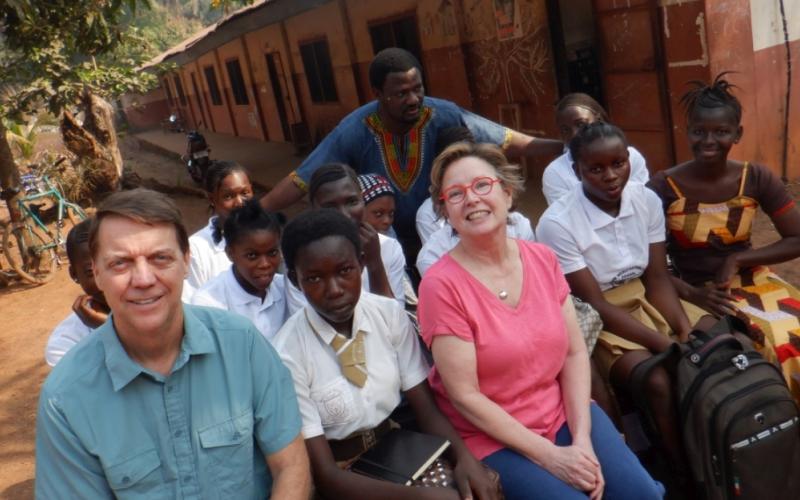
My wife and I returned in February 2020 from an extraordinary trip to Sierra Leone. I retired in 2019 after a 35-year career in banking and as part of my new journey became involved with Develop Africa. The founder, Sylvester Renner, and I agreed that to appreciate and understand the impact of the organization fully, I should travel to the country, meet with the local team, and visit the various projects in both Freetown and more remote villages. As my wife and I told Sylvester on our return, the experience was life-transforming.
I don’t think either one of us can overstate the impact of our brief trip to Sierra Leone had on us. We saw poverty that neither one of us had experienced despite extensive travel and living in developing countries. The eleven-year civil war that ended nearly 20 years ago still haunts the country, We saw the damage that remains unrepaired today and heard very emotional stories about barely surviving the Freetown Massacre, watching a father’s death at the hands of the rebels, and seeing a 6-year old brother kidnapped to become a child soldier. As the country slowly recovered from the horror of the war, it had to endure the more recent ravages of the 2014-2016 Ebola outbreak.
Yet for all the tragedy and poverty its citizens have experienced, we were also struck by the resilience and hope of the people we met. Despite hardships, they persevere in the hope for a better future.
Freetown
We arrived in Freetown in early February, just ahead of the global Covid-19 outbreak and resulting lockdown. Two things struck us immediately. While the pandemic had yet to materialize, the health screening on entry was far more rigorous than the much more developed-country borders we had already traversed on our way to Sierra Leone. Clearly despite being in the early days of the pandemic, the country’s recent experience in battling the Ebola virus had taught valuable lessons in preparing and controlling potential viral outbreaks.
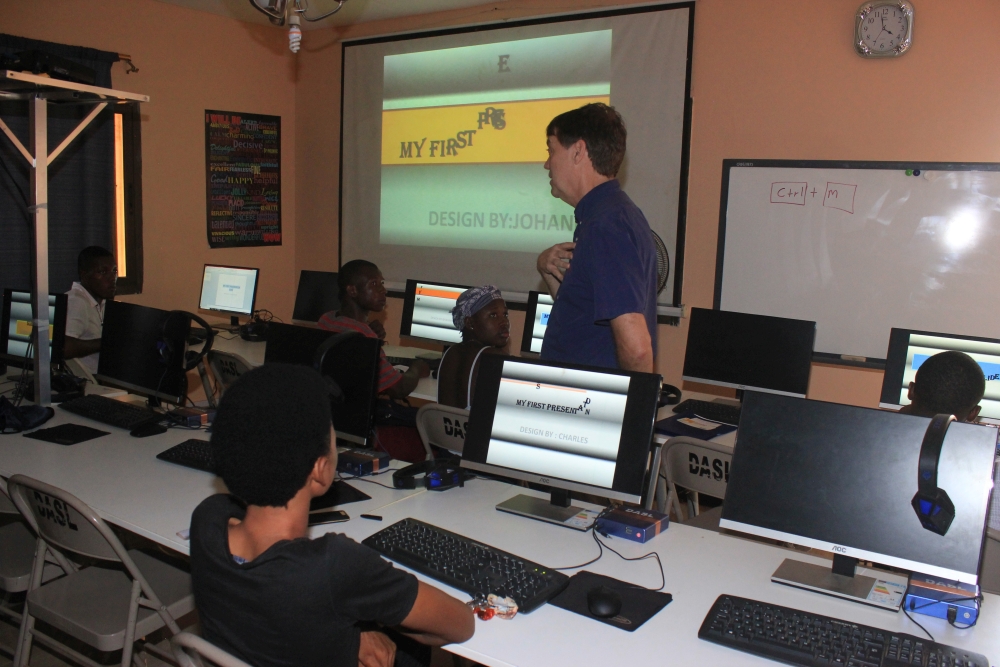
The second was the extreme level of poverty. We arrived late at night and only caught a glimpse of the city on our way to the hotel. The following day we had the opportunity to explore the city and surrounding countryside. We had both been teachers in Kenya and traveled to many countries in the developing world, but were humbled by a new level of poverty that we hadn’t experienced. During our stay in the country, we came to understand better how the ravages of the civil war and Ebola still affect the country and how organizations, such as Develop Africa, make a meaningful difference in peoples’ lives.
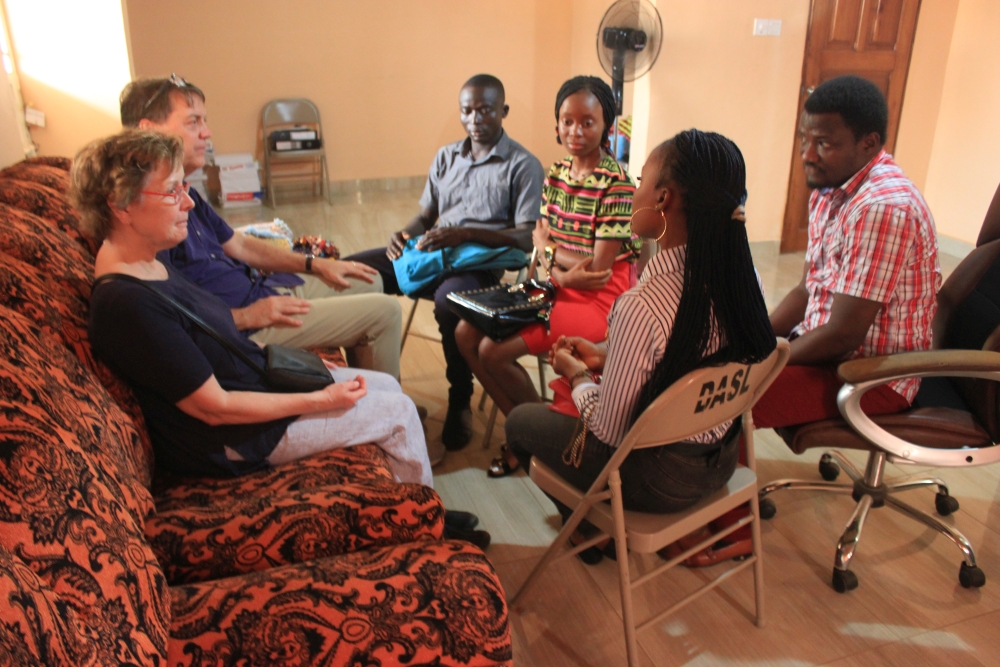
On our second day in the country, we had the opportunity to meet with the Develop Africa country head, Mr. Abu Conteh, and his team at their offices. In our visit with them, we were both impressed with the dedication and enthusiasm they brought to their work. After introductions and a tour of the facility, we embarked on our day in Freetown, visiting schools, talking to some of Develop Africa’s young beneficiaries, and observing a computer training session.
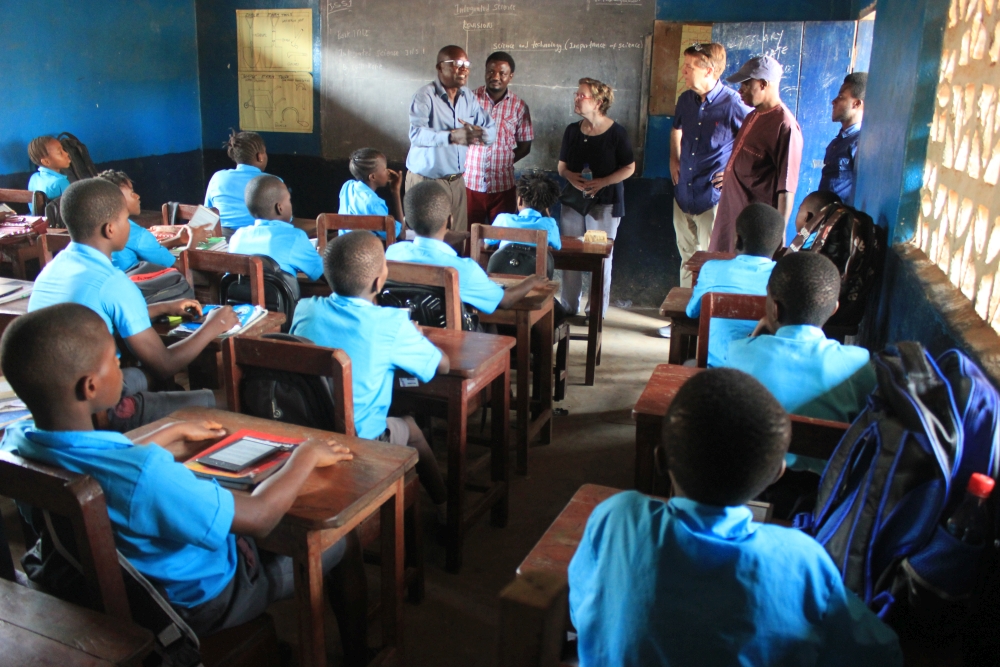
Our first stop was at a school in a very poor area of Freetown with no paved roads or potable water. The headmaster of the El Bethel Primary and Secondary School met us and explained how he had started the school 20 years before because the area had no schools within easy walking distance. Over the years he expanded the facility and student body, growing it from providing early childhood education only to a full-scale primary and high school. We visited classrooms and saw first hand how they utilized the Kindles Develop Africa had provided (photo above). He explained that the devices saved them money on physical books and enabled them to download new more up-to-date titles when available.
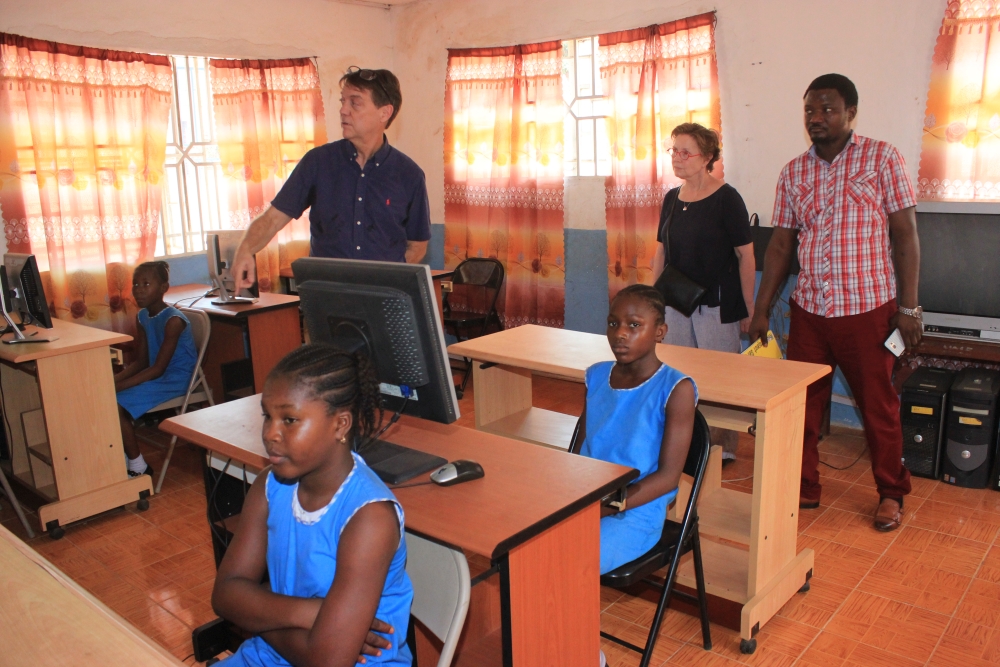
Following our visit to the El-Bethel school, we went to the FAWE School (Forum for African Women Educationalists), an all-girls primary and secondary school. We met with the headmistress and some of her staff and found them to be truly dedicated to their work, like many of those whom we met during our visit. In our meeting, they highlighted the importance of Develop Africa’s support for the girls and the computer lab which Develop Africa funded. We had the opportunity to take a tour of the school and sit in on a class using the computers. The girls in the computer room also gave us a short presentation.
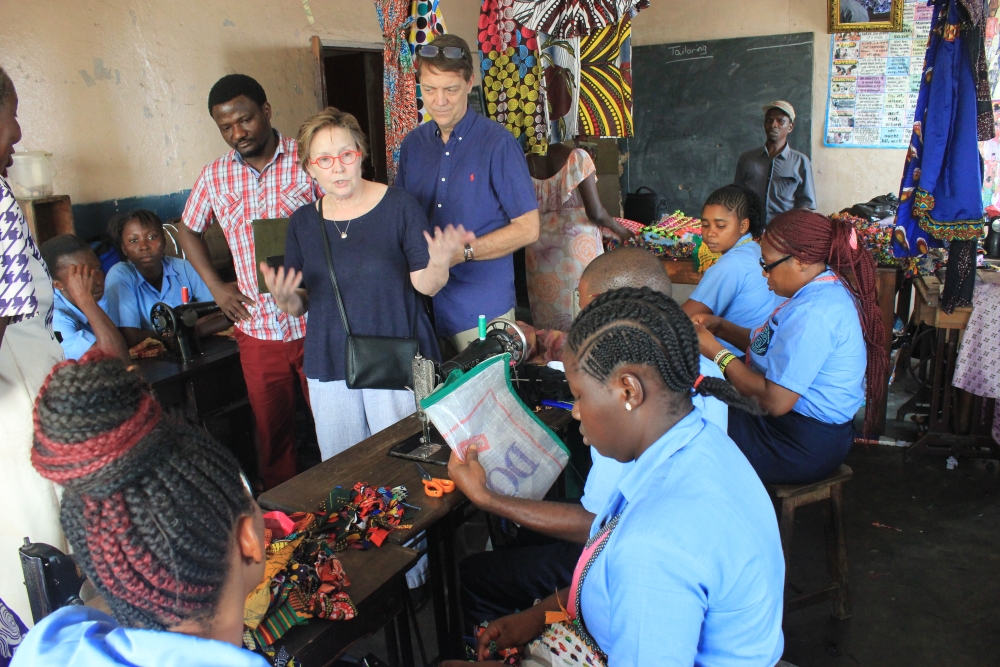
Our next stop was to a small tailoring school Develop Africa supports with funds for specific projects and sewing machines. The headmistress led us on a tour of the facility and encouraged us to talk to her students. Many of them had graduated from secondary school but wanted to learn a trade. In addition to tailoring skills, they also learned how to use cloth scraps to make beautiful rugs. We’re hoping that we can help them sell these here in the US.
We finished our day back at the Develop Africa offices where we met with some of its beneficiaries. We had a delightful time talking to two sisters and a young man about the positive impact Develop Africa had on their lives. Later two young women joined our meeting. They had become pregnant during the Ebola crisis and since they were visibly pregnant had been banned from attending school. Develop Africa had stepped in to support them during this time with classes and further skills training. Their stories and appreciation for the support were very moving.
Kamakwie and Kamawornie
The next day we traveled seven hours upcountry to the villages of Kamawornie and Kamakwie. We now understand the local expression of an “African Massage”. Most of the trip was over rough, dusty, dirt roads that during the rainy season were all but impassable. Along the way we had the opportunity to meet with a former beneficiary who is now at university, providing another heartening example of the impact Develop Africa has on the children it supports.
We arrived at Kamawornie in the middle of the afternoon. Very movingly, perhaps 50 or so young primary students greeted and serenaded us with a welcoming song. Abu and I made short speeches about the importance of attending and doing well in school. During the tour of the school what struck me was the near-total lack of desks and chairs for the first through third graders and, perhaps as importantly, the fact that the teachers were working without pay. They require additional training to get paid, but many can’t afford the cost of the required classes and travel needed to attend them. Only $100 per year covers these costs for one teacher and $5 will be enough to have a student desk built. We’re now helping two teachers with their additional training and funding the construction of desks and chairs for three grade levels.
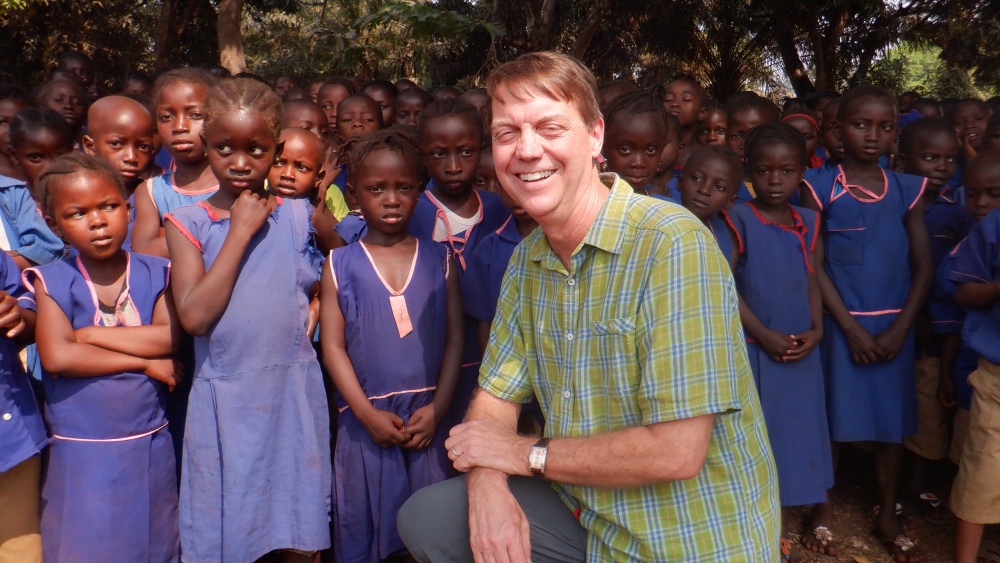
Following a visit to the local secondary school, Abu and I met with the village elders and select parents of the students. We spoke at length about the importance of education. We also met with a number of students who Develop Africa supports not only with their school fees but also with solar lights. The village is so remote it lacks electricity and clean water supply, so the lights are critical to enabling the students to study at night. After the meetings, the villagers treated us to a feast of roast deer and greens over rice before we departed for an hour's drive back to Kamakwie.
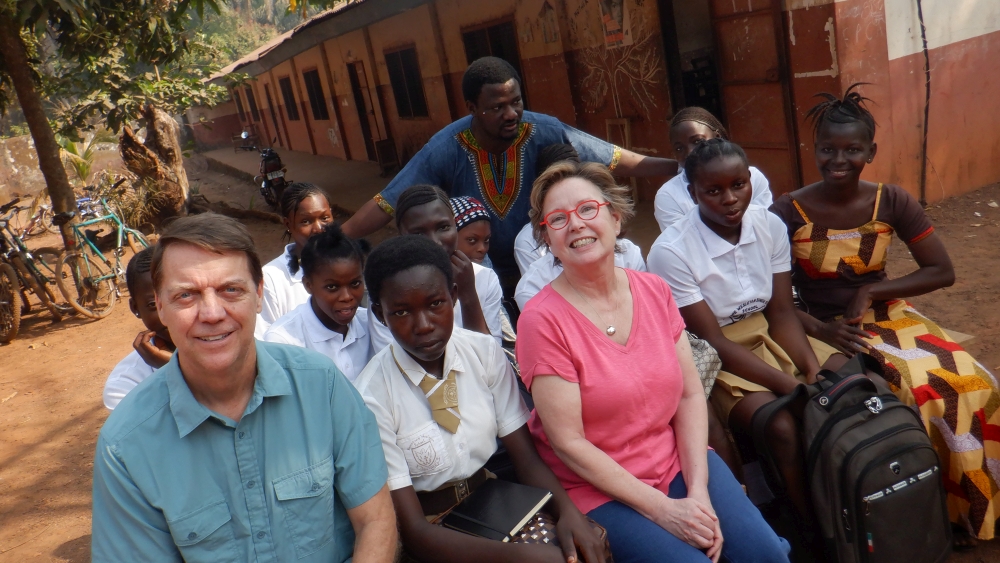
The next morning we spoke to students at the Kamakwie Wesleyan Secondary School and later met with the headmaster and his senior staff. While the school is one of the better-off ones in the area, it still struggles from the aftermath of the civil war that ended nearly 20 years ago. The staff showed us some of the classrooms that had been ransacked. They remain in very poor condition, and, in many cases, without the equipment the school had before the war. We also met with ten female students who Develop Africa supports and who exemplified what we saw so often on our visit to Sierra Leone. Despite their hardships, they had a wonderfully optimistic outlook and confidence in a better future.
Sadly, we needed to depart for Freetown that afternoon and the following day from Sierra Leone. For all our travels and experiences, the few days spent in Sierra Leone will remain with us always. We’re already planning a return trip!
Links to Photo Albums
- Kamawornie
- Kamakwie Wesleyan School
- FAWE Primary School
- Baptist Tailoring School
- DASL Computer Lab
- El-Bethel Primary and Secondary School
- Meeting Individual Beneficiaries
Parker and Lisa Russell

